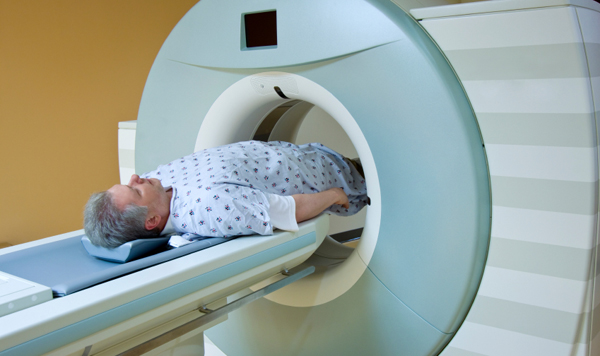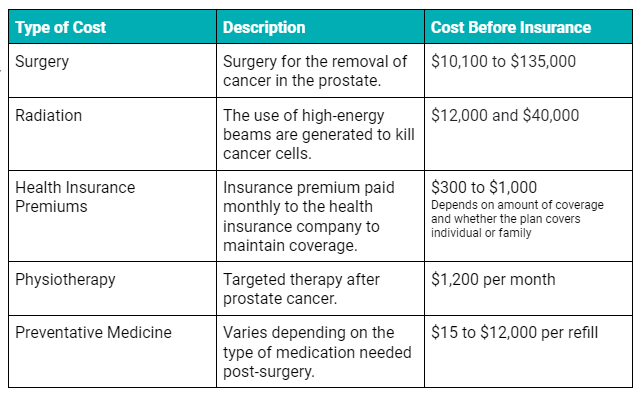Not known Facts About Best Prostate Cancer Hospital In India
Not known Facts About Best Prostate Cancer Hospital In India
Blog Article
Reliable Prostate Cancer Therapy Alternatives for Guy
Prostate cancer is a common worry among men, with treatment alternatives varying depending upon the stage and aggression of the illness. While surgery remains a main therapy method, there are likewise alternative methods such as radiation treatment, hormonal agent therapy, and immunotherapy that have shown encouraging outcomes. Additionally, strategies like watchful waiting and energetic security are getting acknowledgment for their duty in taking care of prostate cancer cells. Comprehending the subtleties of these treatment alternatives and their effectiveness is vital for making educated decisions relating to one's wellness and wellness.
Surgical Treatment as Therapy Alternative
Surgical intervention stands as a main therapy option for prostate cancer clients in cases where the illness is local and surgical procedure is deemed ideal by the medical care group. Prostate cancer cells surgical procedure intends to remove the malignant tissue from the prostate gland, either partly (prostatectomy) or totally (radical prostatectomy) The decision to choose surgery is usually based on numerous aspects, including the stage of cancer cells, the individual's overall wellness, and potential negative effects.
One usual medical approach is robotic-assisted laparoscopic prostatectomy, which uses precision and marginal invasiveness contrasted to conventional open surgery. This method uses robot arms controlled by the cosmetic surgeon to remove the prostate gland with improved mastery and visualization.
While surgery can be reliable in removing localized prostate cancer cells, it may require risks such as urinary incontinence and impotence. Clients considering surgical procedure must participate in detailed discussions with their medical care suppliers to evaluate the advantages and possible downsides of this therapy choice.
Radiation Therapy for Prostate Cancer Cells
Having explored the role of surgical procedure in dealing with localized prostate cancer, the focus now moves to discussing radiation therapy as another vital treatment technique for this illness. Radiation therapy makes use of high-energy rays to target and damage cancer cells in the prostate gland. There are 2 primary types of radiation therapy commonly utilized for prostate cancer cells: outside beam of light radiation and brachytherapy.
Exterior light beam radiation includes routing radiation from an equipment outside the body towards the prostate. On the various other hand, brachytherapy entails putting contaminated seeds directly right into the prostate, providing radiation from within.
Radiation treatment can be a standalone treatment for localized prostate cancer cells or used in mix with various other therapies, such as surgical treatment or hormone treatment, relying on the phase and aggression of the cancer. Best prostate cancer hospital in India. Common negative effects of radiation treatment may consist of tiredness, urinary system problems, and digestive tract issues, which are typically short-term and can be managed properly
Hormone Treatment in Prostate Cancer
Hormonal agent therapy is a vital treatment strategy in taking care of prostate cancer, specifically in cases where the cancer cells has spread out past the prostate gland. Prostate cancer cells commonly rely upon male hormones, such as testosterone, to grow. Hormonal agent treatment, additionally referred to as androgen starvation therapy, intends to either decrease the manufacturing of these hormones in the body or obstruct their results on the cancer cells.
There are different kinds of hormone treatment offered for prostate cancer therapy. One common technique is making use of medications called LHRH agonists and villains, which work by lowering testosterone levels. One more alternative is anti-androgens, which block the activity of androgens on the cancer cells. Some men may gain from a mix of these treatments to successfully manage the cancer cells.
Hormonal agent therapy can aid reduce down the progression of prostate cancer, ease symptoms, and enhance lifestyle. Nonetheless, it is not a curative treatment and might feature adverse effects such as hot flashes, tiredness, and loss of sex drive. Routine tracking and discussions with health care carriers are vital to handle the impacts of hormone treatment effectively
Immunotherapy for Prostate Cancer
Immunotherapy has arised as an encouraging therapy technique for prostate cancer, providing new avenues for combating the illness. Unlike standard treatments like surgical treatment or radiation, which straight target cancer cells, immunotherapy works by taking advantage of the my latest blog post body's immune system to recognize and attack cancer cells.
One form of immunotherapy being explored for prostate cancer is checkpoint inhibitors. These drugs target healthy proteins that here are the findings protect against the body immune system from striking and acknowledging cancer cells. By blocking these proteins, checkpoint preventions can improve the immune action versus prostate cancer cells.
One more approach includes healing vaccinations, which promote the body immune system to target specific antigens located on prostate cancer cells. These vaccines can aid the immune system identify and damage cancer cells better.


Watchful Waiting and Energetic Surveillance
In the realm of prostate cancer cells monitoring, specifically for instances where aggressive intervention may not be instantly needed, the method of watchful waiting and energetic security plays a significant function. Watchful waiting entails monitoring the cancer cells without instant treatment, stepping in just if the cancer cells reveals indicators of development. This technique is commonly thought about for older patients with slow-growing tumors or those with several wellness problems where the dangers of treatment might exceed the advantages.
Active surveillance, on the various other hand, involves routine tracking through PSA examinations, electronic rectal tests, and regular biopsies. It is commonly suggested for individuals with low-risk prostate cancer to closely track any type of changes in the cancer's behavior. If there are signs of the cancer becoming more hostile, treatment alternatives can be reevaluated.
Both careful waiting and energetic surveillance aim to stay clear of unnecessary therapies and their prospective side effects, such as urinary system incontinence and erectile dysfunction, while guaranteeing prompt treatment if the cancer progresses. These approaches give a balance in between managing the cancer cells efficiently and protecting the client's lifestyle.
Verdict

Prostate cancer cells surgical procedure intends to get rid of the malignant tissue Check Out Your URL from the prostate gland, either partly (prostatectomy) or entirely (radical prostatectomy)Having explored the role of surgical procedure in treating localized prostate cancer cells, the focus now changes to going over radiation therapy as an additional essential treatment modality for this condition.Hormonal agent therapy is a critical therapy strategy in taking care of prostate cancer, particularly in cases where the cancer cells has actually spread past the prostate gland. Watchful waiting entails monitoring the cancer without prompt treatment, stepping in only if the cancer cells reveals signs of development. It is commonly suggested for people with low-risk prostate cancer to very closely track any kind of changes in the cancer cells's habits.
Report this page